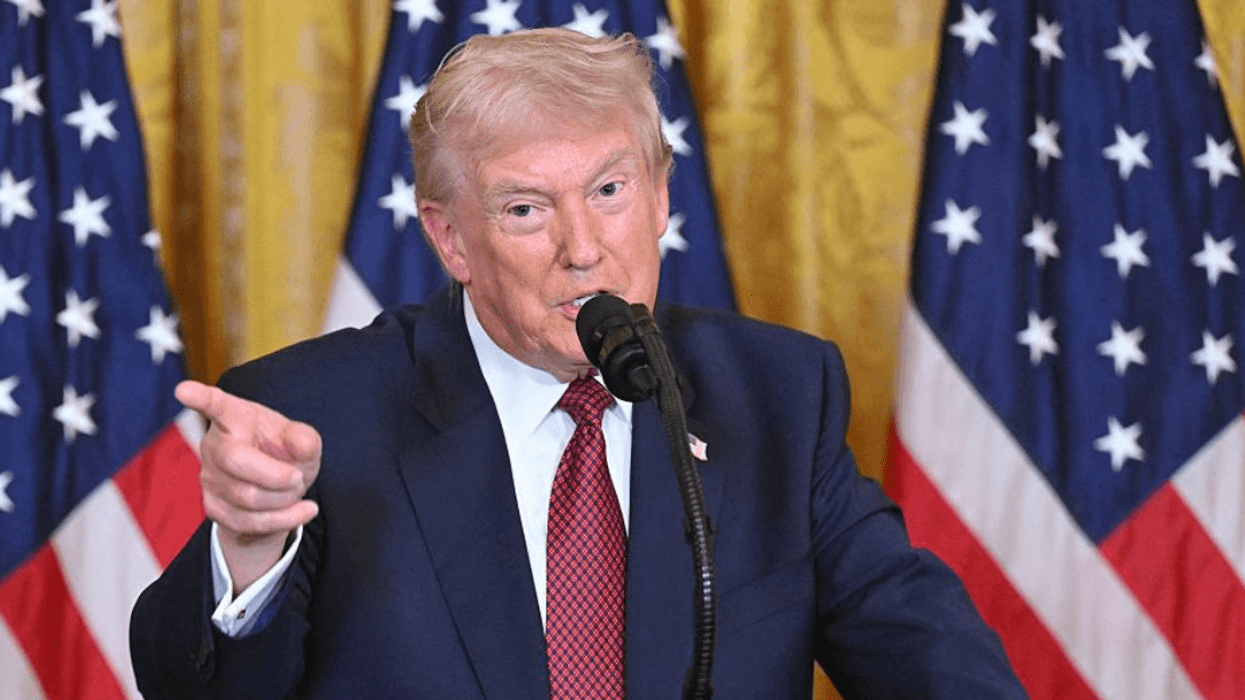Alumni and faculty at St. Lawrence University, the alma mater of Sen. Susan Collins, (R-ME), are calling on university officials to rescind an honorary degree awarded to her as punishment for her vote to confirm Associate Supreme Court Justice Brett Kavanaugh earlier this month. A letter signed by more than 1,300 alums states that they believe Collins's support for Kavanaugh "is not in line with the core values" of the university.
The alums point out that while the honorary degree Collins received in 2017 recognized that she did not support the GOP's attempts to repeal the Affordable Care Act, her support for Kavanaugh shows a "lack the integrity and commitment to justice that we expect from the St. Lawrence body":
"We feel that the Senator lacks the 'St. Lawrence in Action' that the Senator drew from her Christian Ethics class and cited in her 2017 address accepting the honorary degree of Doctor of Humane Letters. We ask that the University revoke this honorary degree as we find that she is not deserving of it in the face of her recent actions. We ask the university to do this in support of truth and for all of the victims of sexual assault and violence, of which many of her fellow alumni and students have suffered."
The complete letter is below.
Dozens of faculty members co-signed a separate message which states that revoking Collins's degree would "dismantle rape culture," which they define as "attitudes and behavior that normalize and condone sexual assault."
"While our campus has come a long way in the years since Senator Collins was a student here to educate the campus population about sexual assault and harassment, and to adjudicate it fairly when it happens, we still have much hard work before us in and outside of the classroom," the faculty wrote.
The faculty members acknowledge that Collins, who graduated in 1975, is one of the organization's most distinguished alums but noted that "speaking out against her actions is an exceptional act that contains risk, which is exactly why we find it the right action to take."
"It communicates that we find the dismantling of rape culture more important than saving face or avoiding critique that has the potential to threaten relationships with people who wield considerable power," they added.
St. Lawrence released a statement via Ryan P. Deuel, its spokesperson, who said: "Throughout its long history, St. Lawrence University has never rescinded any earned or honorary degree, and it has no intention of doing so in this situation."
Reactions to the movement to revoke Collins's degree have been decidedly mixed:
Kavanaugh was confirmed earlier this month amid controversy over the time-limited investigation into the sexual misconduct allegations against him. There has been an enormous amount of pushback the FBI’s report has received from politicians and the general public alike in light of the limits placed upon the investigation and the knowledge that the bureau declined to interview the witnesses suggested by the attorneys for Kavanaugh’s accusers.
Kavanaugh's fate was in the hands of several undecided senators, including Senator Collins, who in a much-maligned speech on the Senate floor, claimed that she believed Dr. Christine Blasey Ford, the Stanford University professor who in her testimony before the Senate Judiciary Committee last month recalled when Kavanaugh assaulted her at a party when they were both in high school, was assaulted, just not by Kavanaugh, despite Dr. Ford’s testimony that she could absolutely identify Kavanaugh as the perpetrator. She has since doubled down on her statements.
Collins's vote to confirm Kavanaugh runs counter to a comment she made during a 60 Minutes interview.
Collins said that she would never vote for a Supreme Court nominee "who had committed sexual assault or who had lied about sexual assault – that's not a hard call for me. I would have voted no if I disbelieved Judge Kavanaugh, but given his denials and the lack of evidence that this happened, I just did not think that it was fair to ruin the life of this distinguished judge and his family over allegations that cannot be proven."
The Washington Post reported that the FBI’s investigation had been “highly curtailed” and that it had focused primarily on the allegations brought to light by Dr. Ford. The FBI did not interview Dr. Ford, deeming her Senate testimony sufficient.
The FBI did interview Deborah Ramirez, who says Kavanaugh exposed himself to her at a Yale fraternity party, but Ramirez’s legal team has no indication that the FBI interviewed any of the corroborating witnesses they provided. Nor did the bureau interview Julie Swetnick, who says Kavanaugh was present at a house party in 1982 where she alleges she was the victim of a gang rape.
The move by alumni comes a day after police launched an investigation into a suspicious letter Collins received at her private address.
A spokesperson for Collins said the author of the letter claimed it contained ricin, a potentially deadly chemical.
"Senator Collins's husband, Mr. Daffron, their dog, and parts of their home were quarantined while the crime lab undertook an analysis of the premises. The affected areas have now been cleared, and Senator Collins and Mr. Daffron will be able to remain at home Monday night," Collins' spokesperson said in a statement.
Collins released a statement of her own, saying she and her family "are very grateful for the immediate and professional assistance" they received from local authorities.
"We feel blessed to live in such a supportive community," she said.



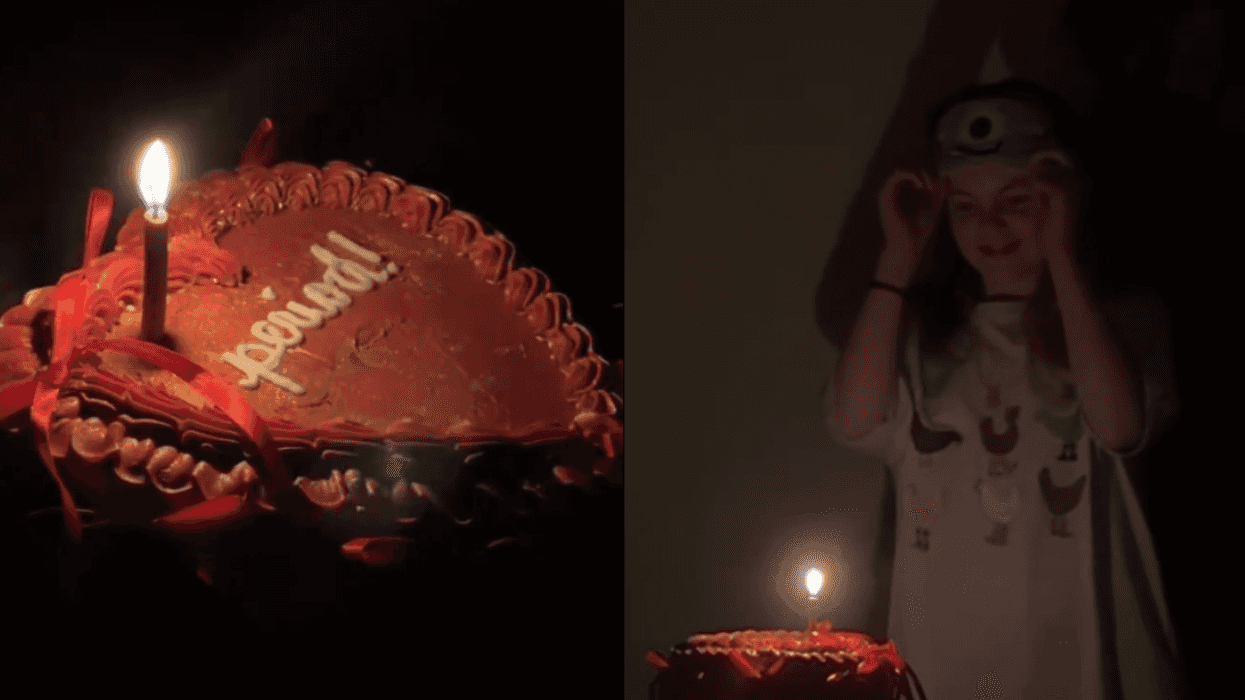
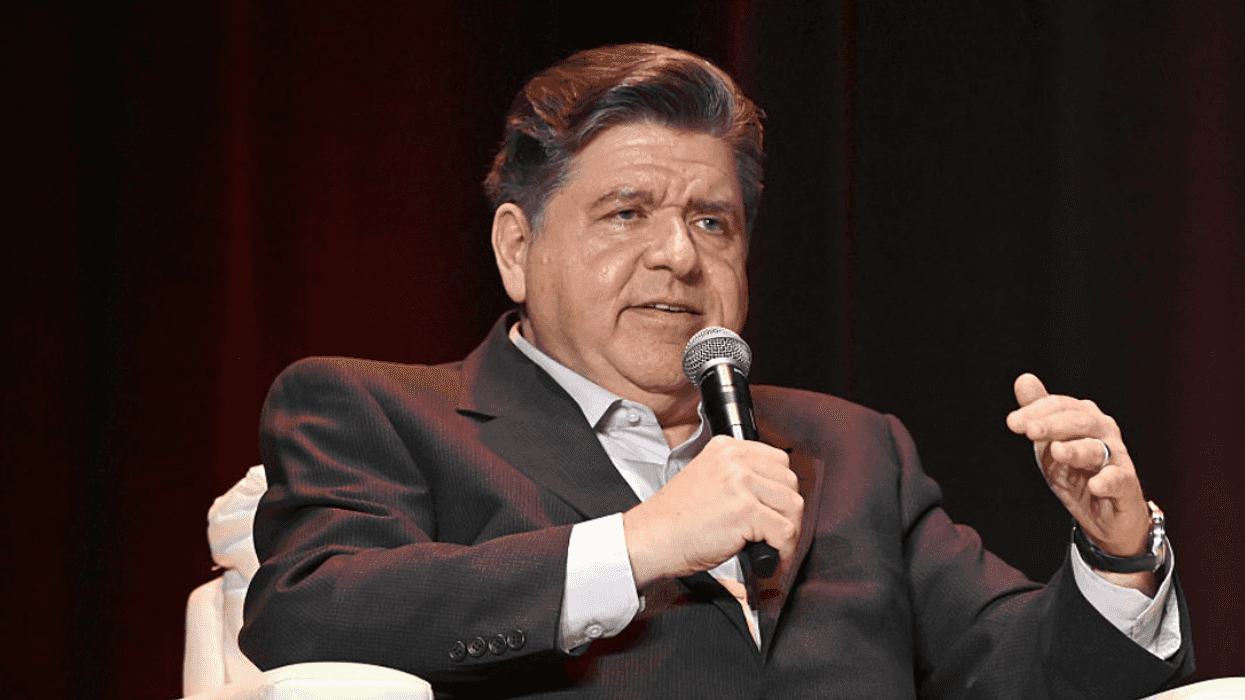
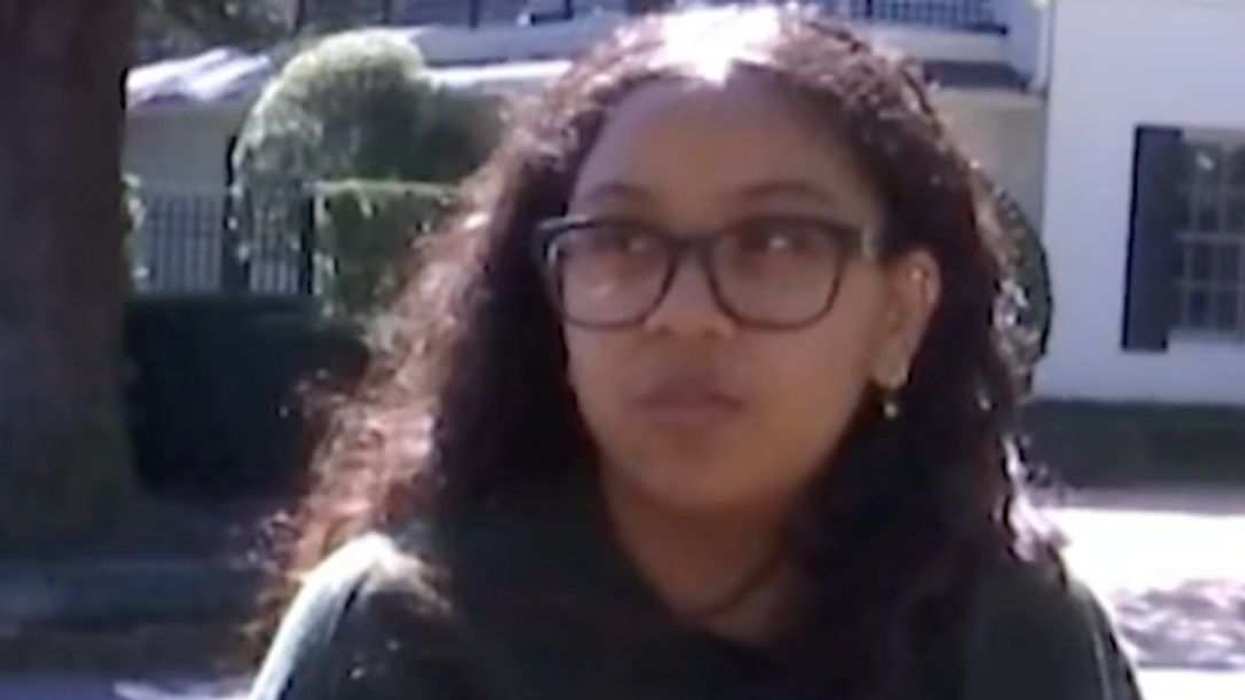









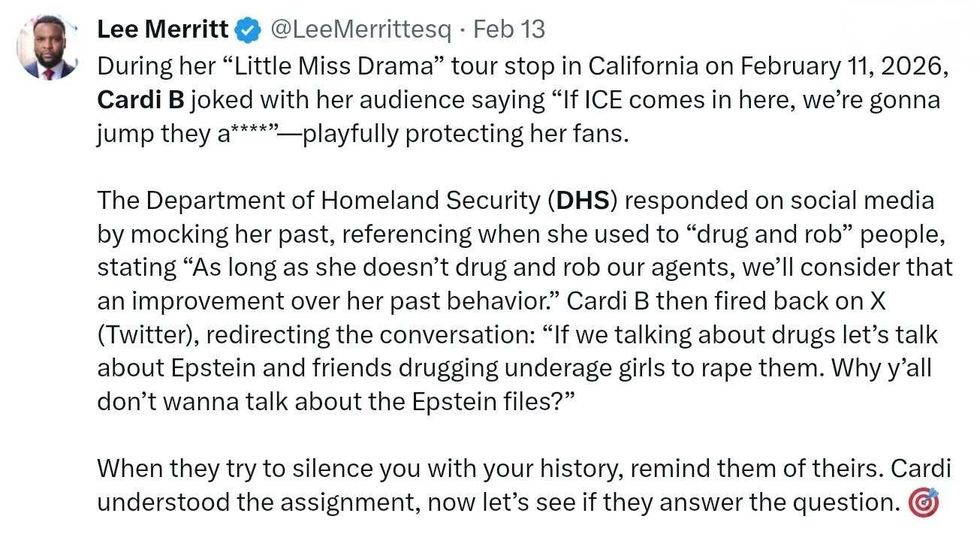 @LeeMerrittesq/X
@LeeMerrittesq/X @bob_moss/X
@bob_moss/X @jelanijones/Bluesky
@jelanijones/Bluesky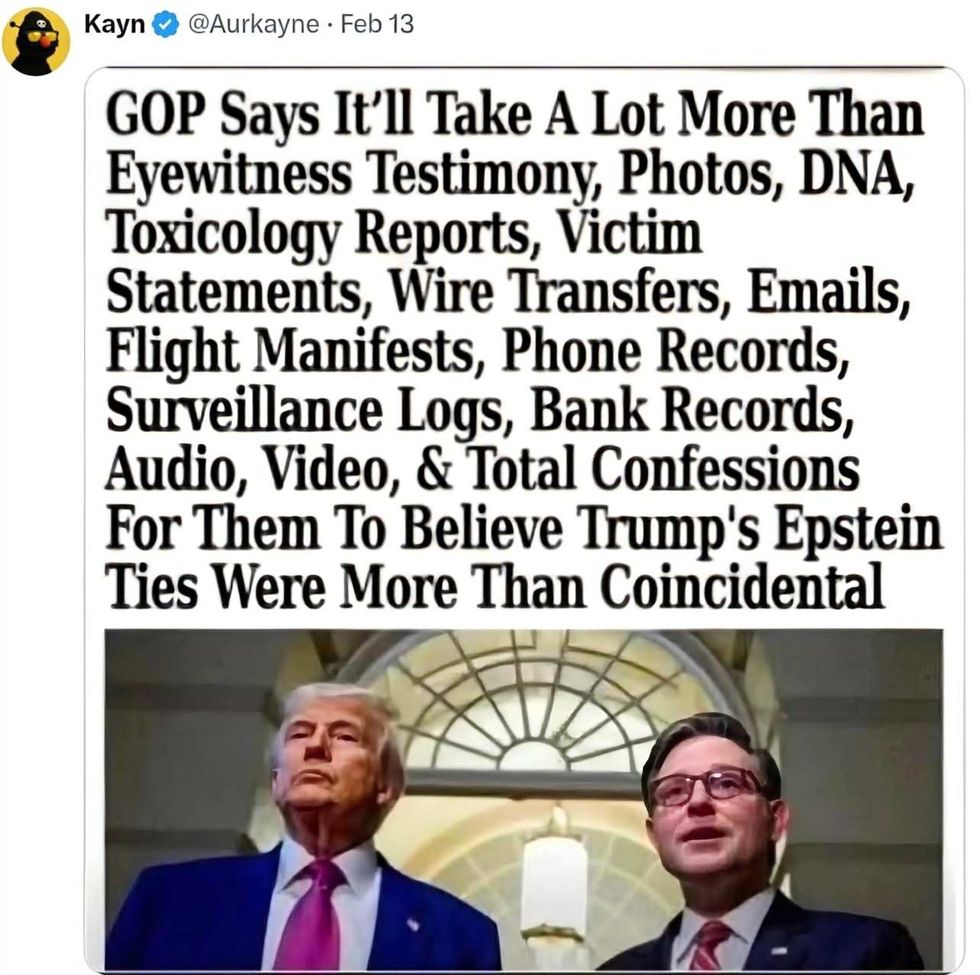 @Aurkayne/X
@Aurkayne/X @sadcommunistdog; @froglok/Bluesky
@sadcommunistdog; @froglok/Bluesky